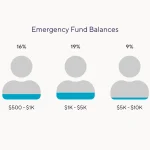
If you’ve ever wondered what Quantitative Finance is, you’re not alone. The field has become so popular that even your financial advisor may have heard of it. But before you go and start investing in the market, you need to understand a few things about it. For starters, Quantitative Finance is not the same thing as quantitative analysis, which is another name for financial math. Essentially, Quantitative Finance is the study of how to analyze and forecast financial markets with the help of mathematics.
While quantitative analysts have traditionally come from applied mathematics, they can also have backgrounds in other fields, such as physics or mathematics departments. But a dedicated education in Quantitative Finance is often the most beneficial. Quants typically work in the operations or information technology departments of large financial institutions. They’re rarely found at boutique firms and should therefore aim to focus on large institutions, like bulge-bracket banks. In the case of a finance firm, a quantitative analyst would be best served by working at a large institution.
A quantitative finance degree offers students a variety of career options, including investment management, risk management, and trading. The program is cross-disciplinary in nature, requiring minors in economics and mathematics. Many students choose to double major in these fields, as it requires two sets of coursework: ECON 200 and 201, and MAT 331). It is also advisable to consult a math or economics adviser to find out which track to pursue.
The quantitative finance program at Stevens University has been accredited by the CFA Institute, which recognizes universities with at least 70 percent of the CFA Candidate Body of Knowledge. After completion of the program, Quantitative Finance graduates are highly qualified to manage financial assets and manage risks in Wall Street firms. This includes jobs in investment banking and financial modeling, as well as consulting for companies and publishing in leading publications. The course also prepares students for the CFA exam.
Students who do not have a background in finance are encouraged to enroll in courses in Portfolio Management. Portfolio diversification is essential in Fund Management, so understanding the relationships between asset classes is an essential skill. Quantitative Finance helps fund managers learn the patterns of asset prices and use these insights to improve their portfolios. In this way, the students will be well prepared to enter the financial world. If they are interested in studying quantitative finance, they should consider getting a certificate in it.
The program emphasizes mathematical models and applications. It combines the mathematical theory of quantitative finance with computational simulations to make investment decisions. A quantitative analyst applies mathematical models to the financial markets. They help to manage risk, make investment decisions, and support trading and risk management departments. So, as you can see, quantitative finance is more than analyzing the stock market. The field is a critical component of modern financial operations and strategies. And this field of study is rapidly advancing, as it is an integral part of finance.




